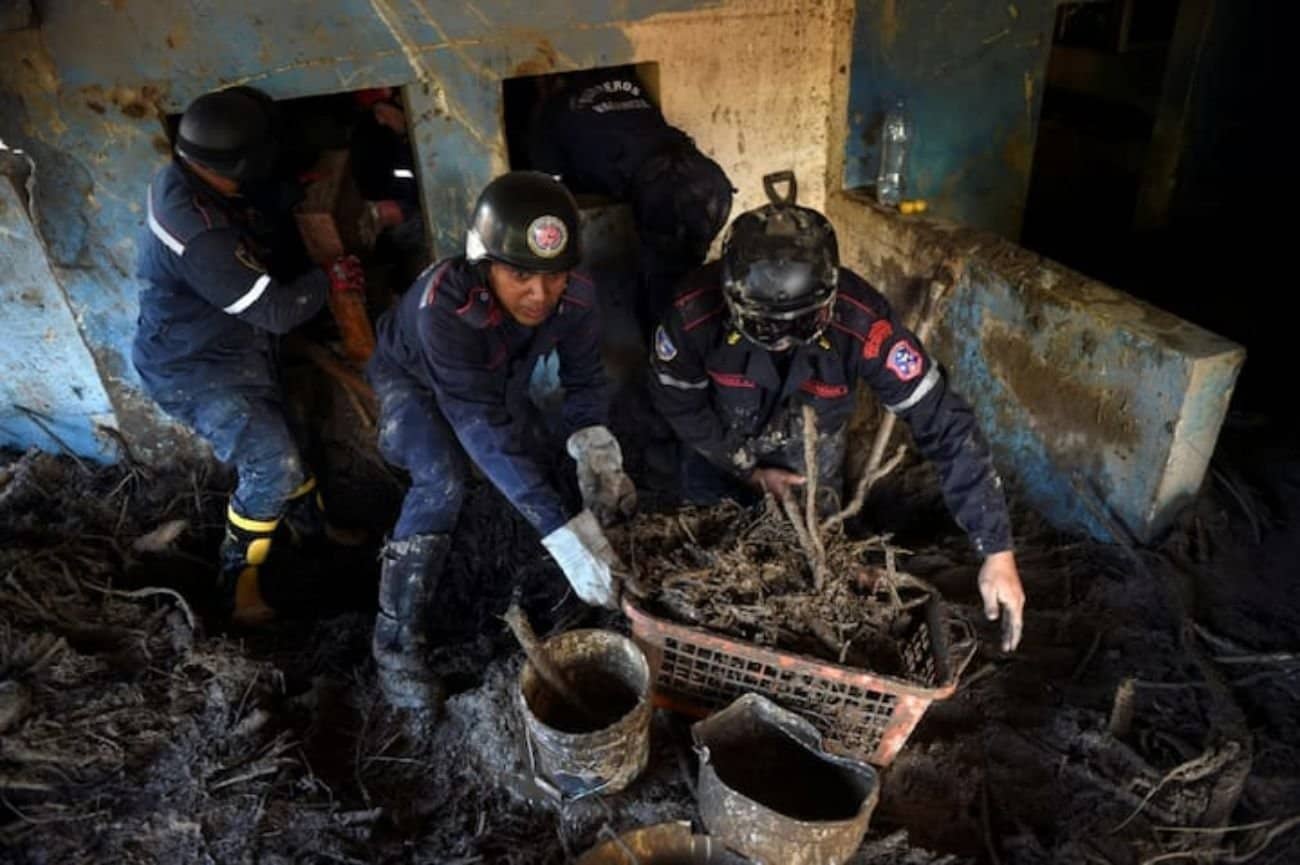News
Hope Fading In Search For Venezuela Landslide Survivors
Published
3 years agoon

Hopes were fading Tuesday of finding alive any of the 56 people missing after a devastating landslide swept through a Venezuelan town with 36 confirmed deaths to date.
Neighbors and rescuers — some 3,000 police, soldiers and other professionals — were engaged in the ever-more desperate search among the fast-hardening mud, tree trunks and rocks dumped Saturday on the town of Las Tejerias.
READ ALSO: De@th Toll Rises To 19 In India Himalayas Avalanche
Rescuers told AFP it would be “difficult” to find any survivors in the town some 50 kilometers (31 miles) from the capital Caracas.
“I don’t know whether to scream, I don’t know whether to run… whether to cry,” Nathalie Matos, 34, told AFP of the frustrating wait for news on the fate of her 65-year-old mother, who she had on the phone as the deluge came.
“She told me: ‘Daughter, I am drowning, the water got in, get me out, get me out… save me!” Matos recounted.
“I tried to call her back, she picked up, but there was just noise.” A rescue team is at her mother’s mud-filled house.
“The dog gave signs here, in this area that was the living room and the kitchen,” said a firefighter, though all their digging so far had yielded nothing. “I know she is there,” insisted Mato.

A few meters away, another team examined a piece of land where a house stood until Saturday, when Las Tejerias became the site of Venezuela’s worst natural disaster in decades.
Neighbors were helping to reconstruct what would have been the floor plan to get an idea of where to dig.
READ ALSO: Lula And Bolsonaro Face Run-Off After Tight Result
A civil protection official, who did not have permission to speak in an official capacity, told AFP most victims of the storm died after they were struck by tree trunks, large rocks or other objects swept along by the raging waters, others of hypothermia.
Unusually heavy rains caused a major river and several streams to overflow on Saturday, causing a torrent of mud that washed away cars, parts of homes, businesses and telephone wires, and felled massive trees.
According to Vice President Delcy Rodriguez, a month’s worth of rain fell in the area in just eight hours. The government has declared three days of mourning.








